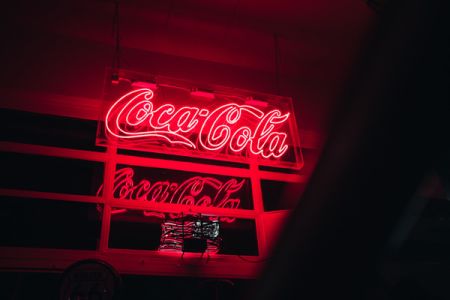You know it’s going to be a tough day when you’re notified you’ve been sued by God in Federal Court. But it was exactly this plague of Biblical proportions that Coca-Cola faced a few weeks ago when Pastors Bill Lamar and Delman Coates filed a class action against Coca-Cola because our venerated Coke bottles don’t have a warning on them about the perils of sugary drinks.
The Food Lawyers® Take:
This gives us a lot to think about on economic, ecologic, and ecclesiastic levels.
First of all, faced with world famine, climate change, and homelessness, Pastors Bill and Del are showing the world they’ve got their priorities straight by warning us about sugar in Coca-Cola. This is really swell of them. I’m sure their faithful are looking forward to a sermon about the sins of “Devil Fructose Corn Syrup” this Sunday.
Attorneys have long used the trick of employing widows, orphans, and people in wheelchairs to gain jury sympathy, but in this case we’ve broken new ground by branching out into the clergy. What attorney in his right mind is going to accuse a Pastor of not telling the truth about sugar in soft drinks?
However, this case isn’t all fun and mind games. My 30-plus years of experience in food law tell me that if Bill and Del win their case, we’ll have some seriously unintended consequences. For example, the public’s been told for years that red meat was high in cholesterol and fat and terrible for our health. But just recently, in late September 2019, we were told that red meat is actually good for us. If Bill and Del prevail in court, does that mean that each ribeye should come with a government warning (or an un-warning?) saying, “Disregard what we’ve been telling you for the last 20 years.” Does that mean we might find ourselves disregarding the un-warning in a few more years? Or maybe we should be disregarding all warnings in the first place?
Then there’s all the excitement about vegetable based Beyond Meat® and Impossible Burger®. Should those products come with a warning that they have just as much fat and more sodium than the hamburger they are emulating?
We also need to focus on the fact that this issue isn’t being decided by FDA, or USDA, or a panel of food scientists. Bill and Del’s case is in front of a judge and jury. The fly in the porridge here is that results change from judge to judge, from jury to jury, and from courthouse to courthouse. So now food labeling isn’t being determined by what’s best for the public, it’s being decided by courtroom roulette.
So after FDA and USDA spend years refining food labeling laws, this is how lawyers, judges, and juries change the law of food labeling in the United States.
Is all of this lunacy? Of course it is. Is it bad? No, it’s just a very small price we pay for living in a free society. In more repressive places where bureaucrats can’t be questioned, government denies people the right to watch the NBA when a team’s general manager says people in Hong Kong should be free. Maybe how we sort out these food issues in the U.S. is lunacy, but it’s a lot better than the alternative.

